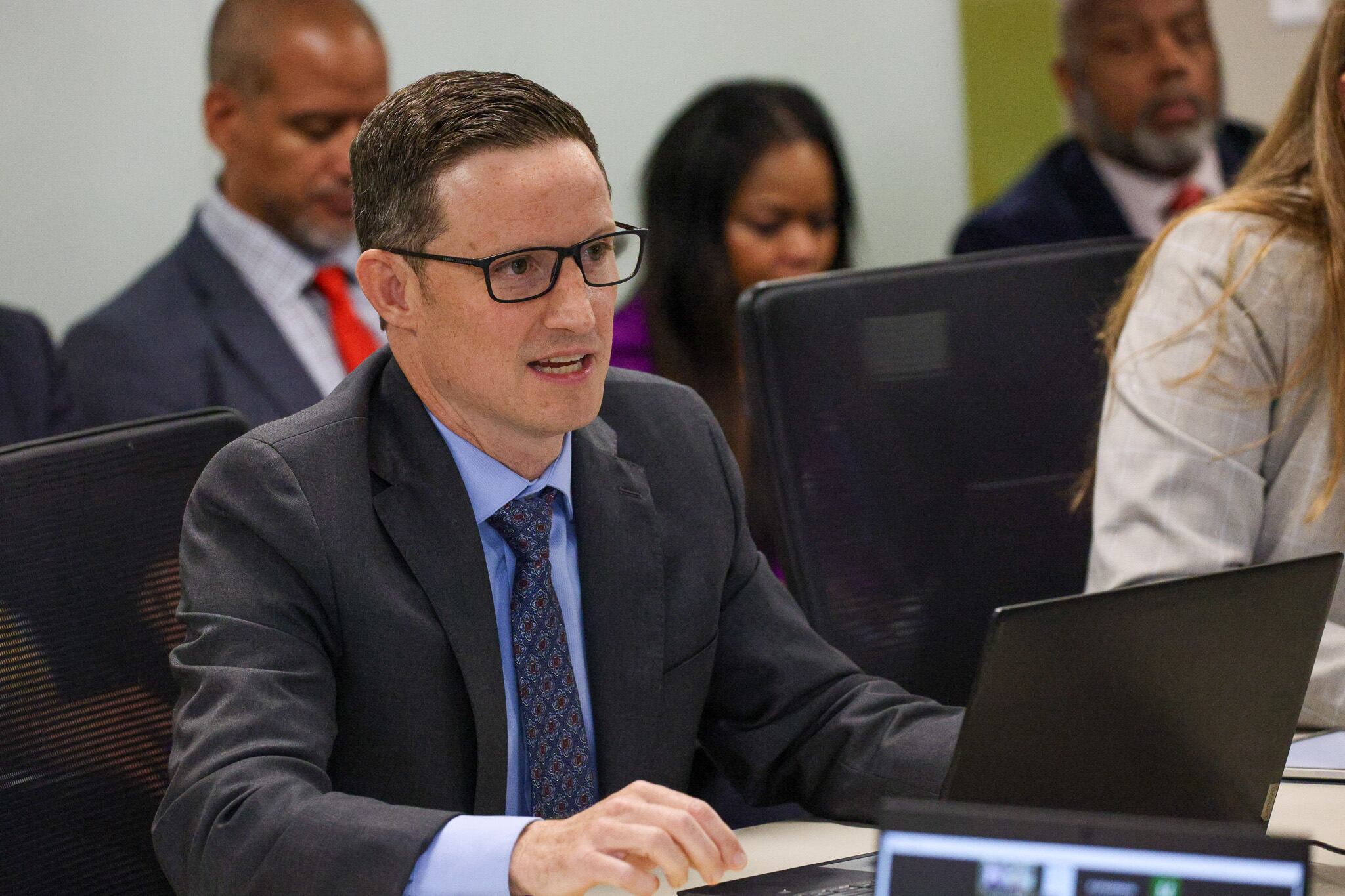Scott Baldermann, who represents the southeast part of the city, is running for re-election to the Denver school board.
Baldermann filed his candidacy Friday. The 47-year-old father of two Denver Public Schools students was elected in 2019 as part of a historic “flip” of the school board to candidates backed by the Denver teachers union.
Over the past four years, Baldermann has advocated for curtailing school autonomy and ending competition among schools over enrollment and test scores.
He championed ensuring more teachers can earn Colorado’s version of tenure by no longer allowing semi-autonomous innovation schools to waive it, and has taken a harder line with charter schools. Most recently, he proposed bringing police officers back to schools — a contentious policy that won approval on a 4-3 vote.
Baldermann’s seat representing District 1 is one of three seats up for grabs on the seven-member Denver school board on Nov. 7. He’ll face one challenger: DPS parent and former KIPP Colorado charter school network CEO Kimberlee Sia.
Baldermann largely self-funded his 2019 campaign, ultimately spending more than $330,000 to win his seat. He said he must do so again “because of the dark money hovering over the district.” Groups supportive of education reform, which Baldermann opposes, spent more than $1 million in the last Denver school board race.
There’s a lot at stake in this election, including how the largest district in the state will deal with declining enrollment and respond to safety concerns after shootings in and around schools.
The election comes at a time when power struggles among some board members have eroded confidence in the board. A recent survey found many Denver voters have an unfavorable view of the board, and some parents have called for the entire board to resign.
Baldermann is the only incumbent currently running for re-election. Board Vice President Auon’tai Anderson recently dropped his re-election bid to run for the Colorado House of Representatives instead.
Baldermann has mostly stayed out of the interpersonal conflicts that have dogged the board. A quieter board member, he is a strong supporter of the board’s switch to policy governance, a change that has at times contributed to the turmoil.
Under policy governance, board members set goals and limits but don’t get involved in the day-to-day operations of the district, which is the job of the superintendent.
“This board, I feel, has been very productive,” Baldermann said in an interview. “But a lot of interpersonal dynamics have overshadowed that work.”
An example of that productivity, he said, was the passage of a policy called “Ends 4 Health and Safety,” which the board adopted with no fanfare in February, a month before a student shot and injured two deans at East High School in March. Just three sentences long, the policy says that in light of a recent increase in gun violence, the district will collaborate with law enforcement and others “to proactively mitigate internal and external threats to safety.”
Those three sentences served as the framework for the district’s response to the East shooting, Baldermann said. A memo the board adopted the day after the shooting temporarily suspending its ban of police in schools and directing Superintendent Alex Marrero to develop a long-term safety plan by June 30 was simply telling him “to accelerate that work,” Baldermann said.
“The good work is boring,” Baldermann said of that policy and others that lay out the board’s goals for the district. “But at the end of the day, that’s the stuff that helps me sleep at night [knowing] that we were doing the right stuff and we were being proactive.”
He believes he has more policy work to do.
Baldermann was among the board members who voted unanimously in 2020 to remove police officers from schools in the wake of the murder of George Floyd.
Three years and several gun incidents later, he said his position changed. Baldermann’s original proposal to bring back school resource officers included training requirements for the officers and limits on their interactions with students, but a majority of his fellow board members stripped out those provisions before the proposal passed.
Baldermann also recently voted to close three district-run schools with low enrollment.
“I do believe that we need to close schools,” he said. “I want to make sure that our marginalized communities aren’t the ones shouldering all of this burden. This needs to be a holistic, citywide solution to address what our schools are going to look like.”
Editor’s Note: This story was updated after the ballot was finalized with the names of all candidates running for the District 1 seat.
Melanie Asmar is a senior reporter for Chalkbeat Colorado, covering Denver Public Schools. Contact Melanie at masmar@chalkbeat.org.





